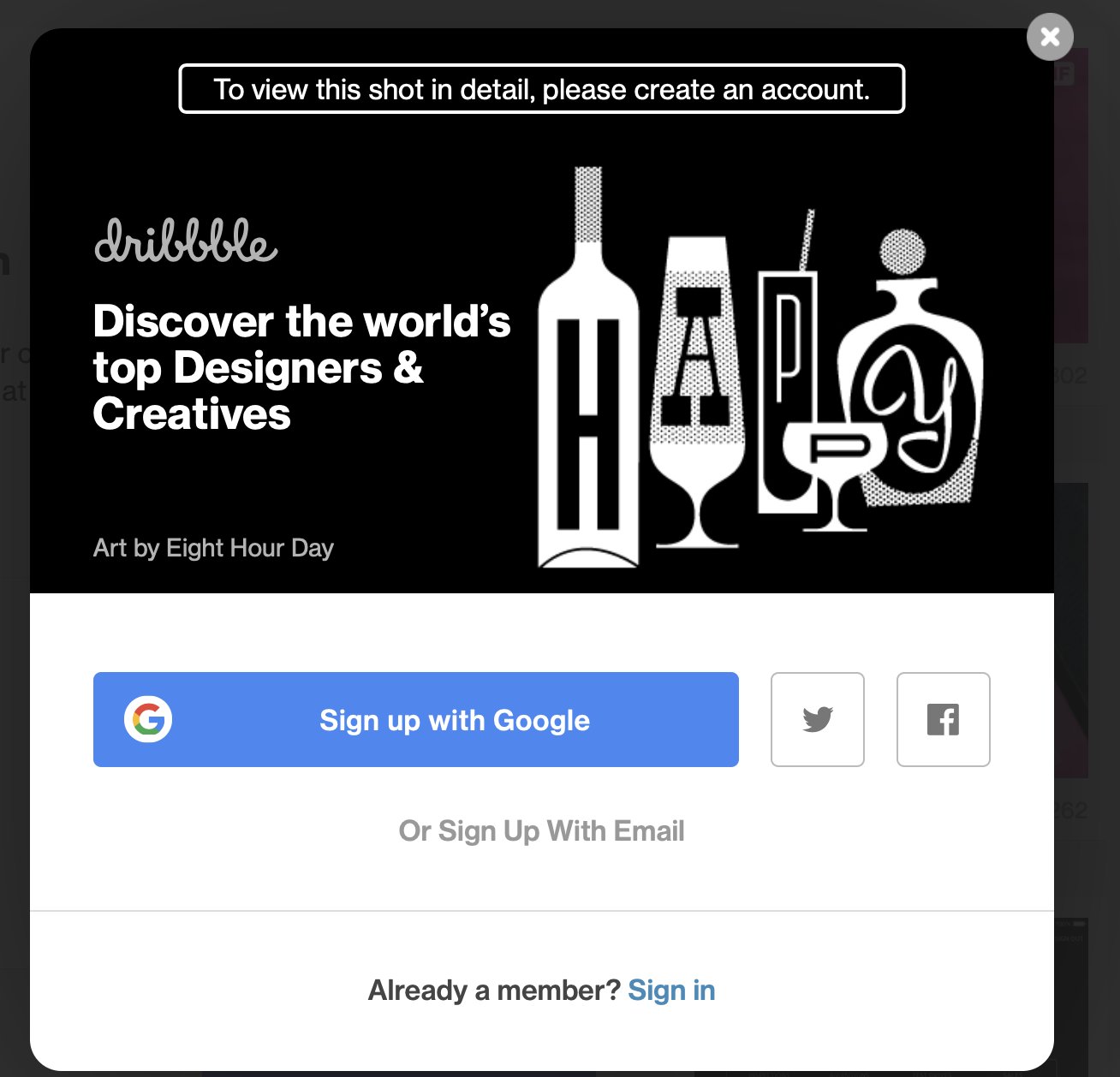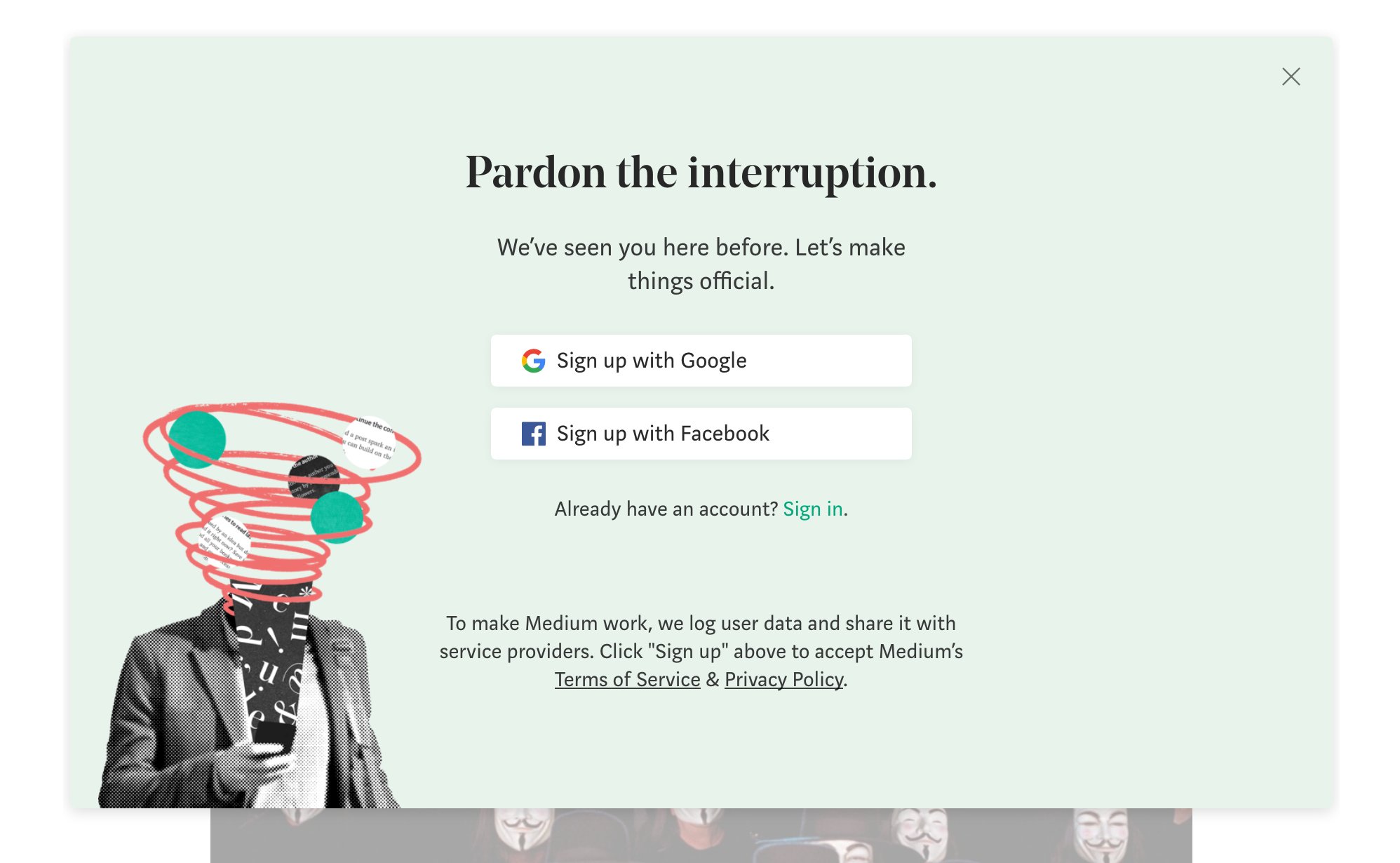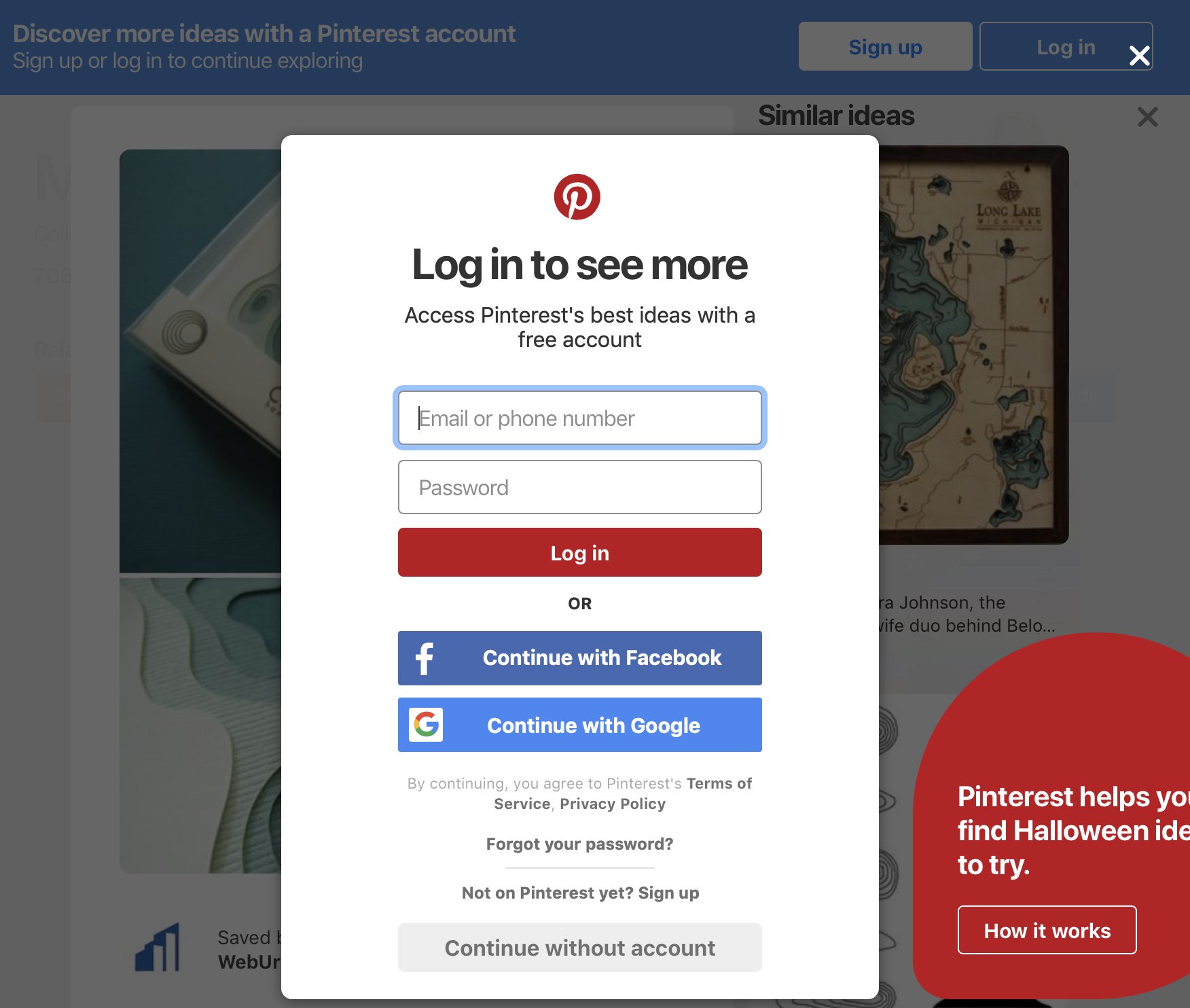People have a lot to share - art, big thoughts, little thoughts, photos, collections of things, etc. New mediums have cropped up everywhere on the internet to make that sharing super convenient. But that convenience comes at a cost, which isn't always obvious at first, and it follows a common process.
The bait and switch that erodes UX
Eventually, the slick free medium you use to share your work will begin gatekeeping your content with a login prompt, trading your reach for their growth.



The eventuality of this is that most of your audience will not create an account or log in just to see your stuff, which could be a big loss to you. However, the company that created that medium will see an incremental bump in signups/logins justifying it, creating an ongoing incentive misalignment.
Another incentive alignment is that most sharing mediums on the open internet (eg Twitter) are not incentivized to create tools to meaningfully reduce toxicity, because argument drives engagement. This is why I'm typically in favor of using mediums with strong moderation and access restrictions of some kind that let tighter communities form.
Once established, most mediums seem to shift gears at some point, and the product experience that made them great starts to break down. These changes are the result of a combination of delayed cluelessness, bad hand-offs as teams turn over, internal disagreement, or the slow cashing in of initial values/optimism to feed the beast of venture expectations. Super common process.
UX Erosion
I haven't seen a UX-oriented name for this process, so how about "UX Erosion"? Definition:
UX Erosion, n; 1. shiny new service & concept appears with great UX that attracts creators, followed by a slow undermining of that UX, transitioning from delight-oriented to lock-in, habit, and apathy.
Today, communities are pitted against mediums
I fully get & appreciate that growth is never forever and eventually all businesses move from growth to sustaining to decline. The thing that irks me about these situations is that there's so often this misalignment between communities and mediums that isn't really necessary.
The misalignment is that content mediums are almost always businesses, and content communities are almost always not. Sometimes misalignments are unavoidable, but in this case they really aren't. Internet technologies are really rather democratized, easy to use, and cheap.
In other words the internet was built for this - for your documents, photos, thoughts, links. The tech behind it has gotten so much more powerful AND easy to use AND cheap and we're still reverting to non-community gatekeepers, all because their UX was new and shiny a while ago.
In the future, we need different values and new techs to break us out of lock-in
Looking forward, it feels like a lot of the dust has settled on the early internet mediums, and the focus is shifting to escaping lock-in, gaining control from gatekeepers, and upping our sophistication in how communities are operated. There's definitely historic parallels here.
The most obvious one is the shift from feudalism to democracy and the wave of revolutions in Europe from the 1700-1800s. The push for equality of all people was in part driven by the ground truth of the rise of firearms that equalized power dynamics between lords and peasants - much like the distributed technologies and standards that were once the foundation of the internet.
Of course there were many dynamics at play leading up to the establishment of democracies, but I bring up firearms as an example of a technology that allows control to change, and I wonder what technologies are left to be developed to help internet communities free themselves of gatekeepers.
More than likely though, it isn't a lack of pure technology, but a lack of values and how they intersect with technology. Convenience is king (this is a UX post after all), and gatekeepers are still better at providing the glue to stitch together disparate communities.
What I'd love to see are community-operated mediums that build out the glue of things like social layers and other common UX[1]. In the meantime, I subscribe to the idea of POSSE when it comes to an individual's web presence - Publish on Own Site, Syndicate Elsewhere. The only UX erosion that will result from this is how tastes change over time, which is a lot easier to see coming.
Lightly edited from tweetstorm posted in Oct 2018.
Remember web rings? ↩︎